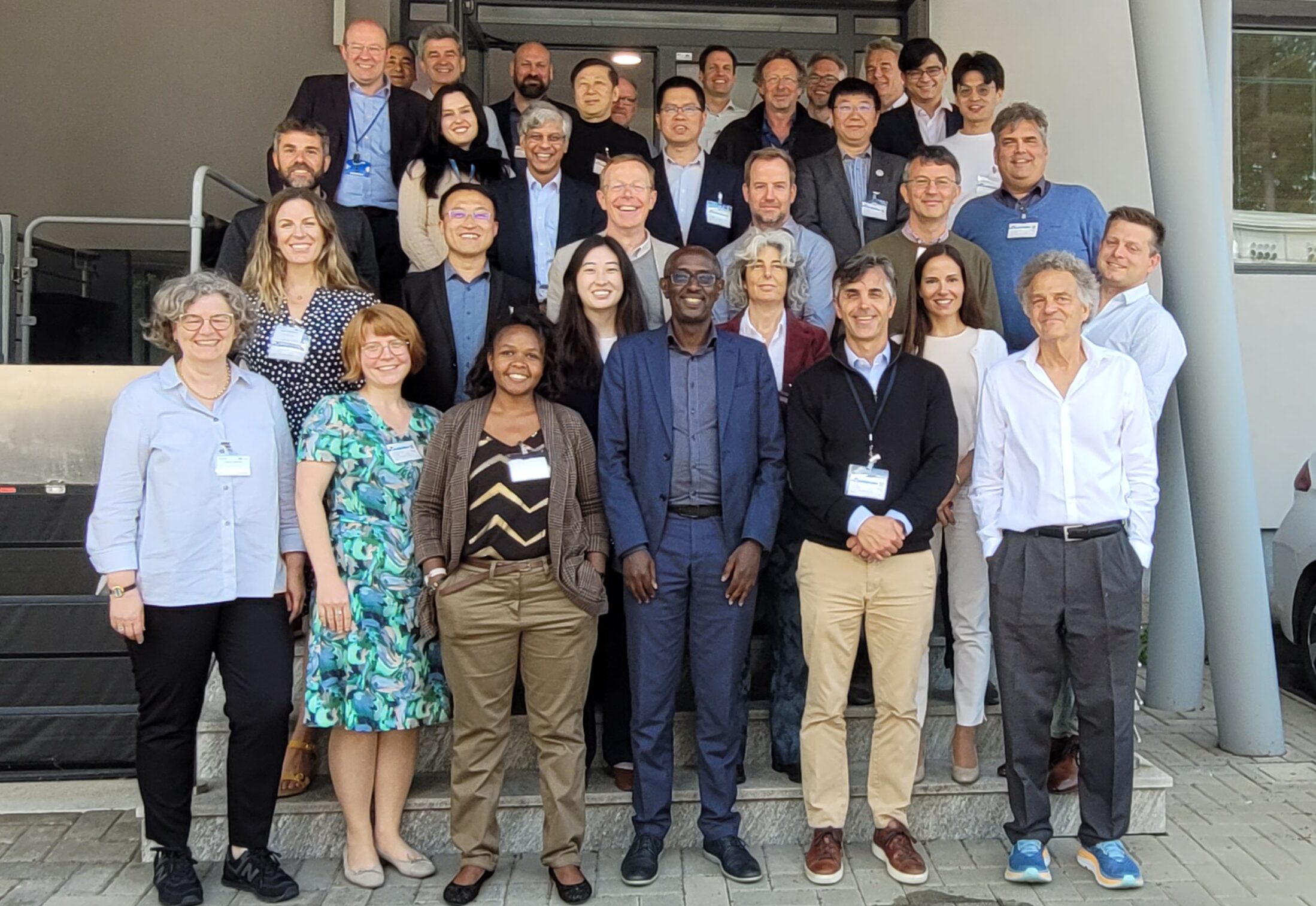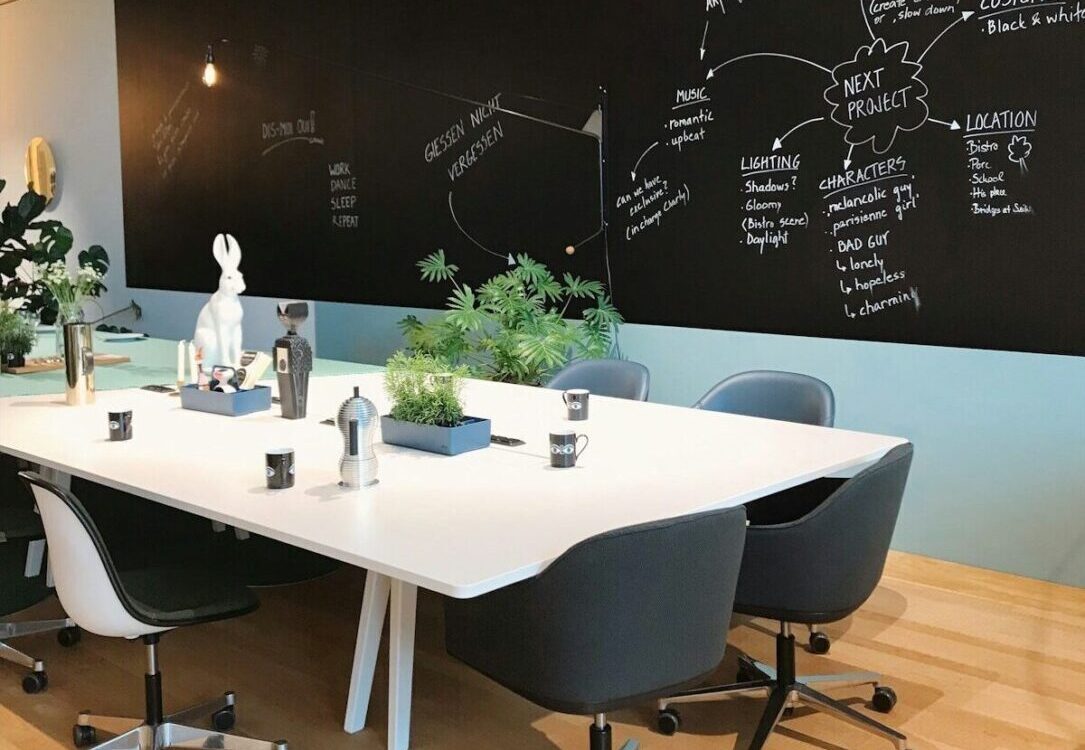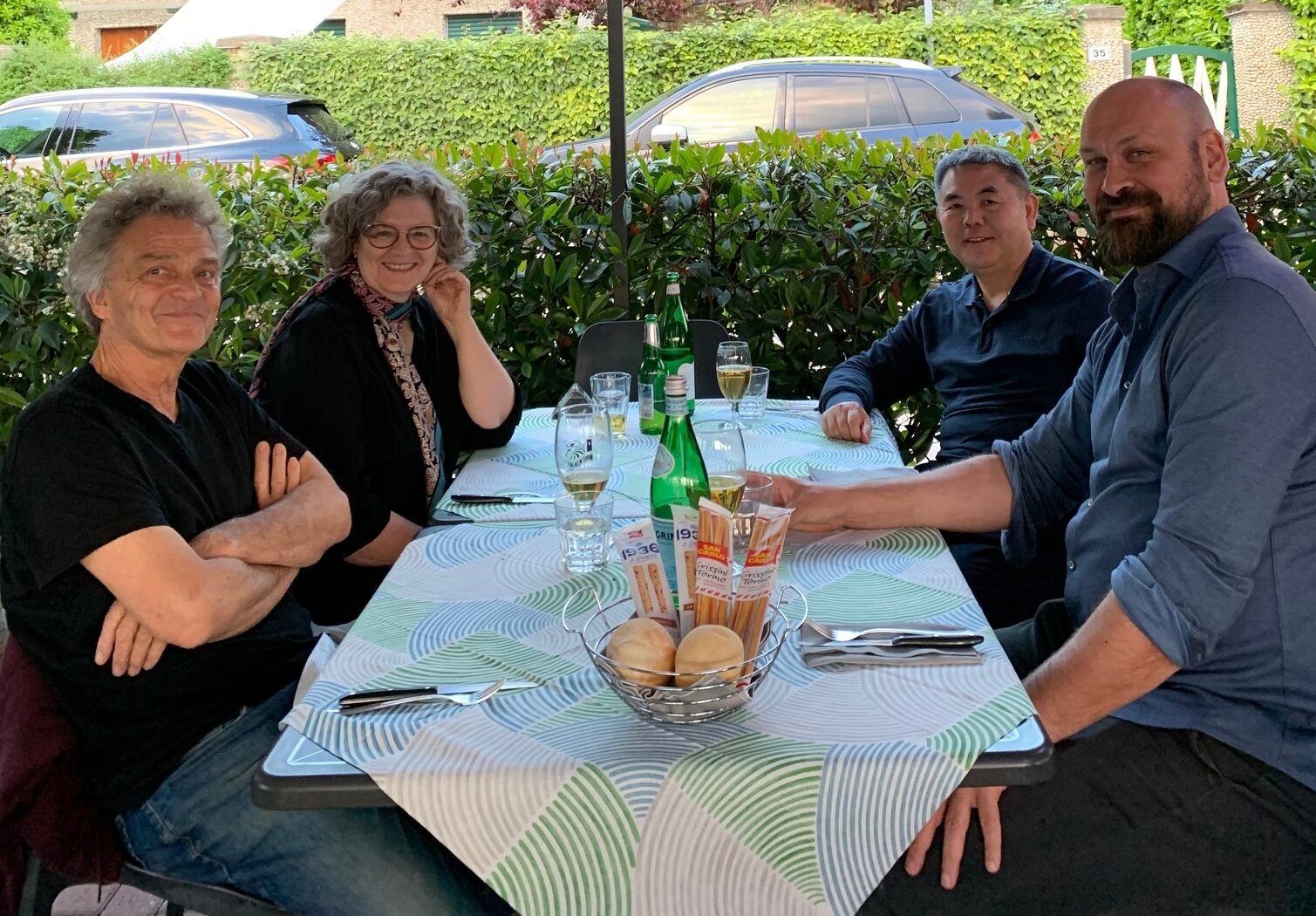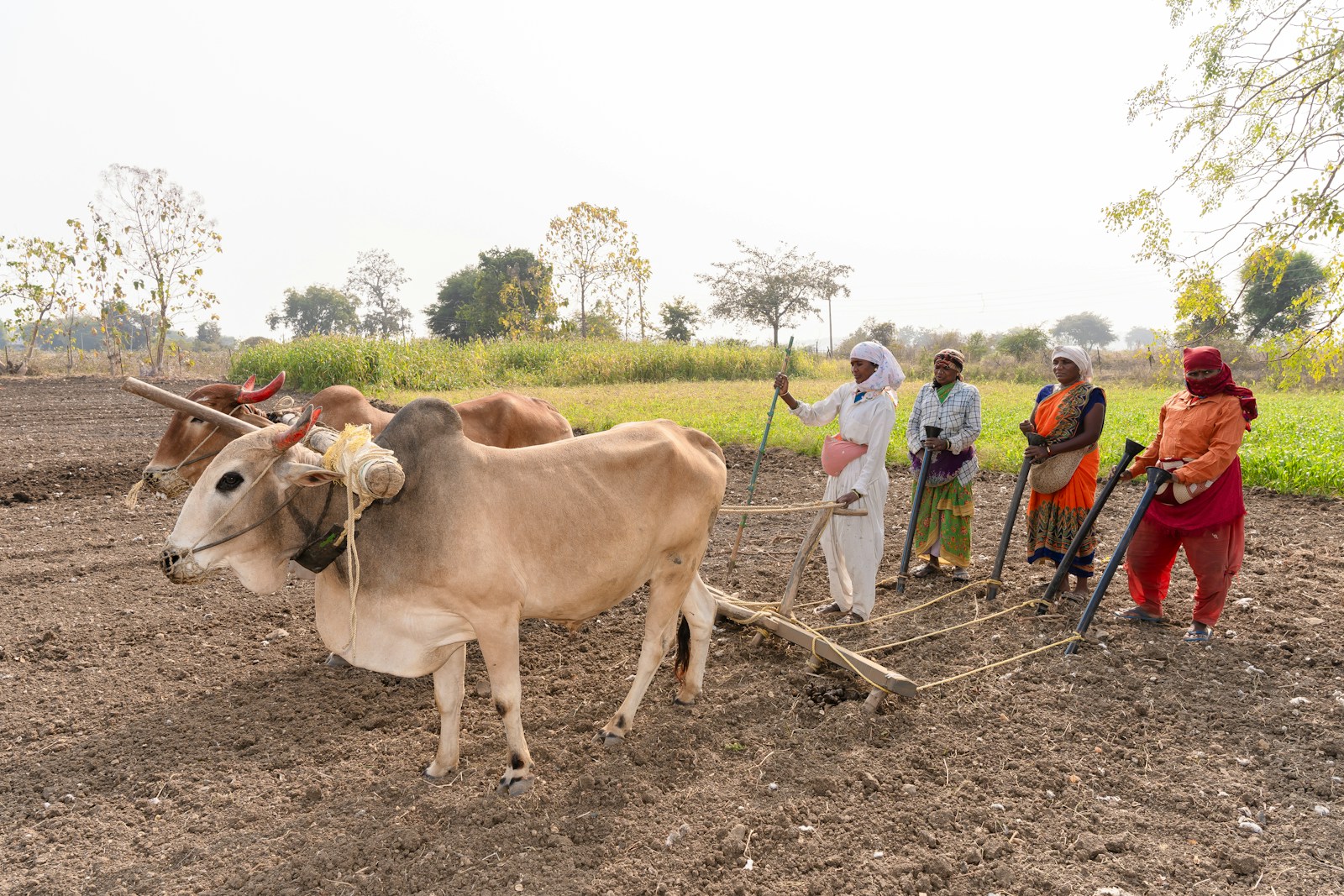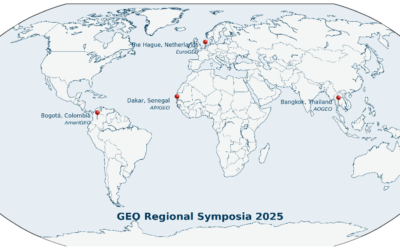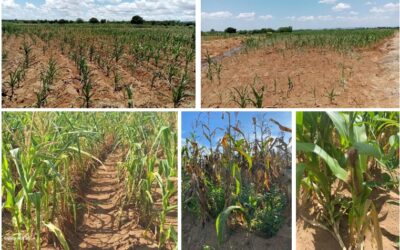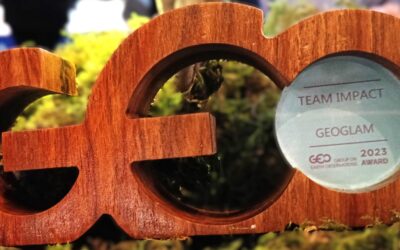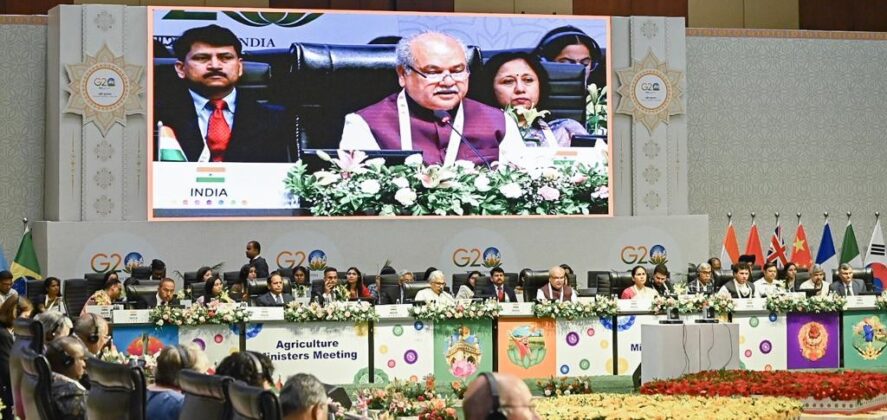Earth Observations for Food Security
Goal
To increase market transparency and improve food security by providing timely, relevant, and actionable information on agricultural conditions and production outlooks globally.
Mission
To foster cooperation and enhance coordination in global agriculture monitoring by strengthening the international community's capacity to use coordinated Earth observations to support early warning and response to food emergencies, aligning with UN Sustainable Development Goals, the Paris Accord, and the Sendai Framework.
Vision
To empower stakeholders with the knowledge and tools needed to achieve sustainable food production, enhance food security, and build resilience against climate change and disaster risks.

Our Purpose
To increase market transparency and improve food security by producing and disseminating relevant, timely, and actionable information on agricultural conditions and outlooks of production at national, regional, and global scales. We achieve this by strengthening the international community’s capacity to utilize coordinated, comprehensive, and sustained Earth observations.
Our Approach
GEOGLAM is an open community built around a good intent and common interest in agricultural monitoring. The resource commitment of participants is based on “best efforts”. All who share the interests of the GEOGLAM community are welcome to join.
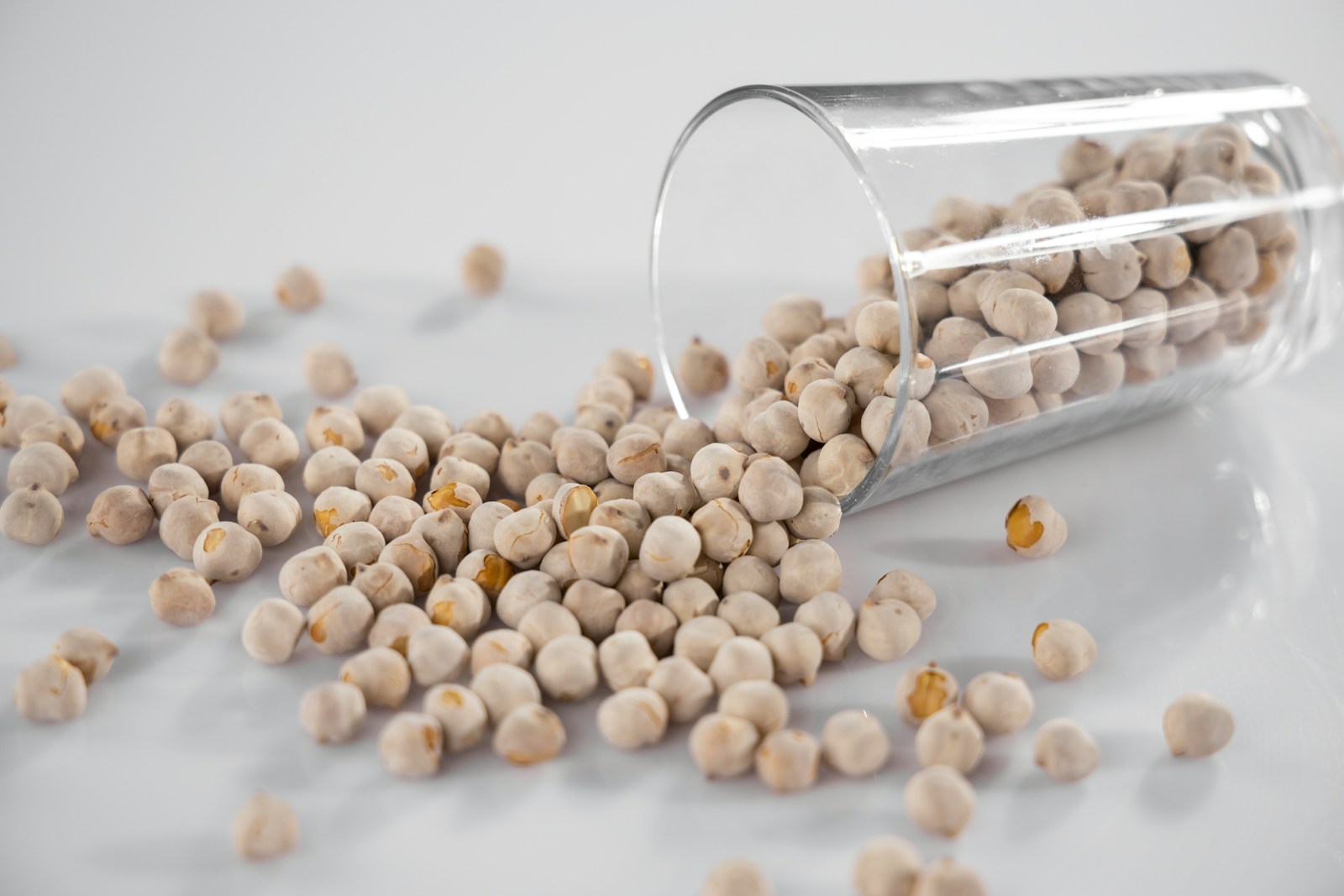
Our Story
GEOGLAM was born from a vision to transform how the world monitors its food systems. Its roots go back to 2003, when the Integrated Global Observations of Land (IGOL) initiative began defining global land observation requirements, including agriculture. Over the next few years, researchers and organizations across the globe convened through a series of UN FAO and GEO-led workshops, laying the foundation for a coordinated approach to agricultural monitoring.
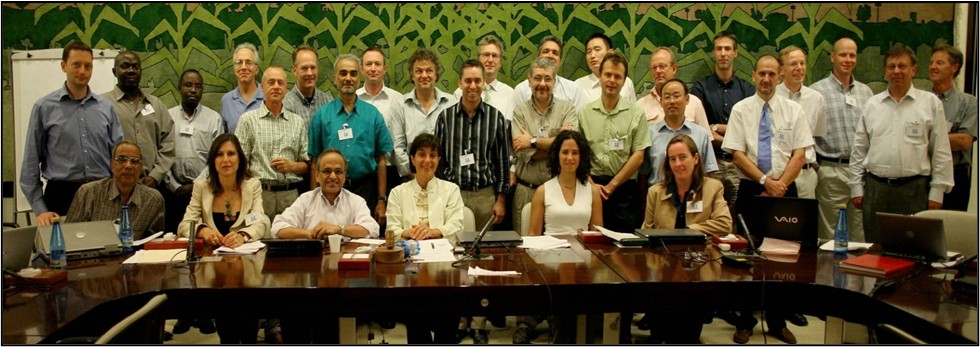
By 2007, this collaboration had grown into a global effort, uniting experts from over 25 organizations to chart a strategy for agricultural monitoring within the Group on Earth Observations (GEO). Between 2008 and 2010, a series of international workshops refined best practices and, most importantly, forged the enduring partnerships that remain the cornerstone of GEOGLAM’s work today. During this period, the Joint Experiment on Crop Assessment and Monitoring (JECAM) was also launched, providing a collaborative research platform that continues to advance agricultural monitoring methods worldwide.
In 2011, at the request of the G20 Agriculture Deputies under the French Presidency, this community’s efforts came together in a proposal to coordinate global satellite-based crop monitoring. The proposal was endorsed by the G20 and launched as GEOGLAM at the Cannes Summit, alongside the Agricultural Market Information System (AMIS). Together, these initiatives aimed to reduce food price volatility and improve global food security through science-based, transparent data.
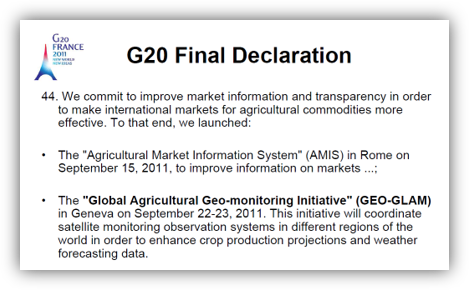
Today, GEOGLAM continues to grow as a GEO Flagship programme, supported by many of the same committed experts who helped shape its origins — a testament to the strength of this enduring global partnership.
Our Focus Areas
Impact Stories

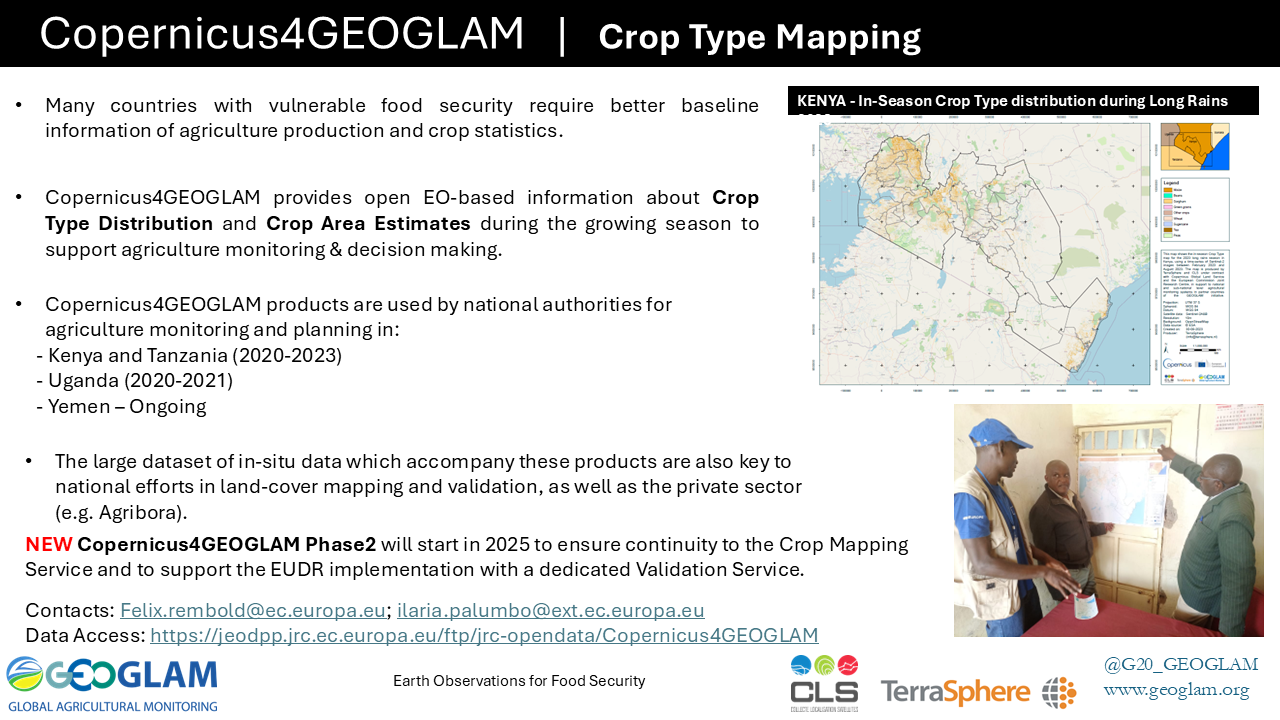











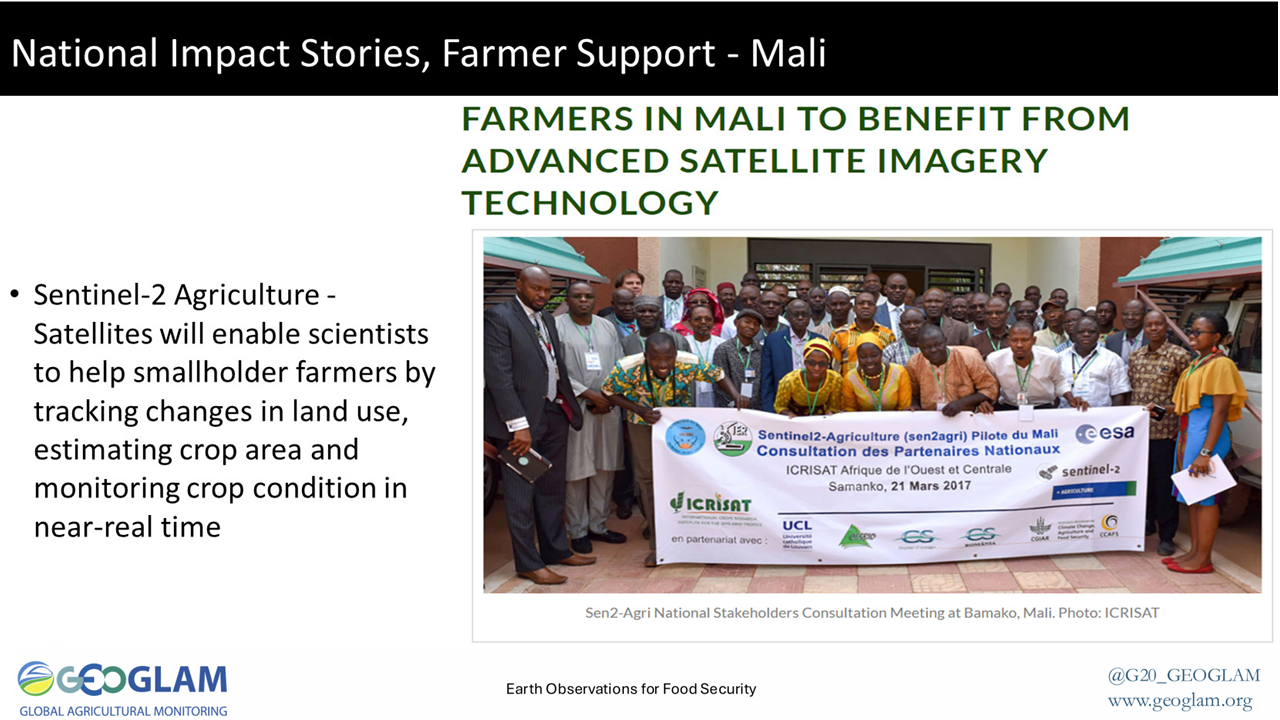
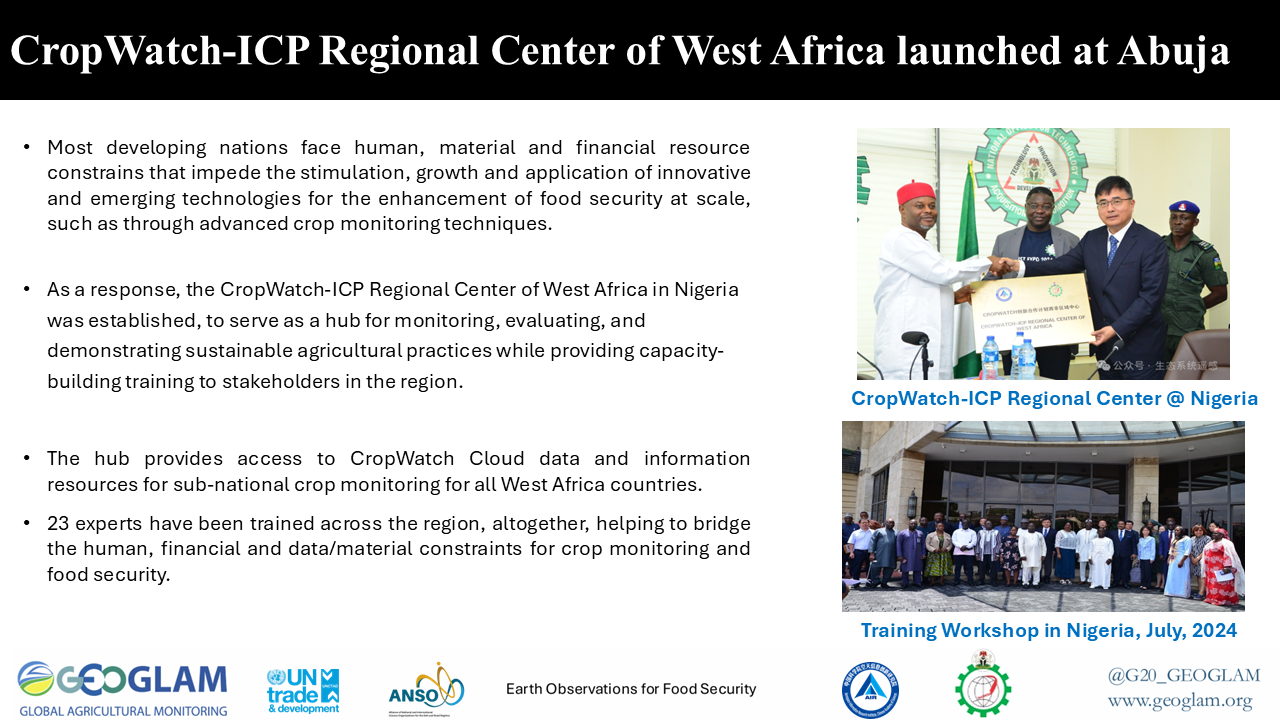
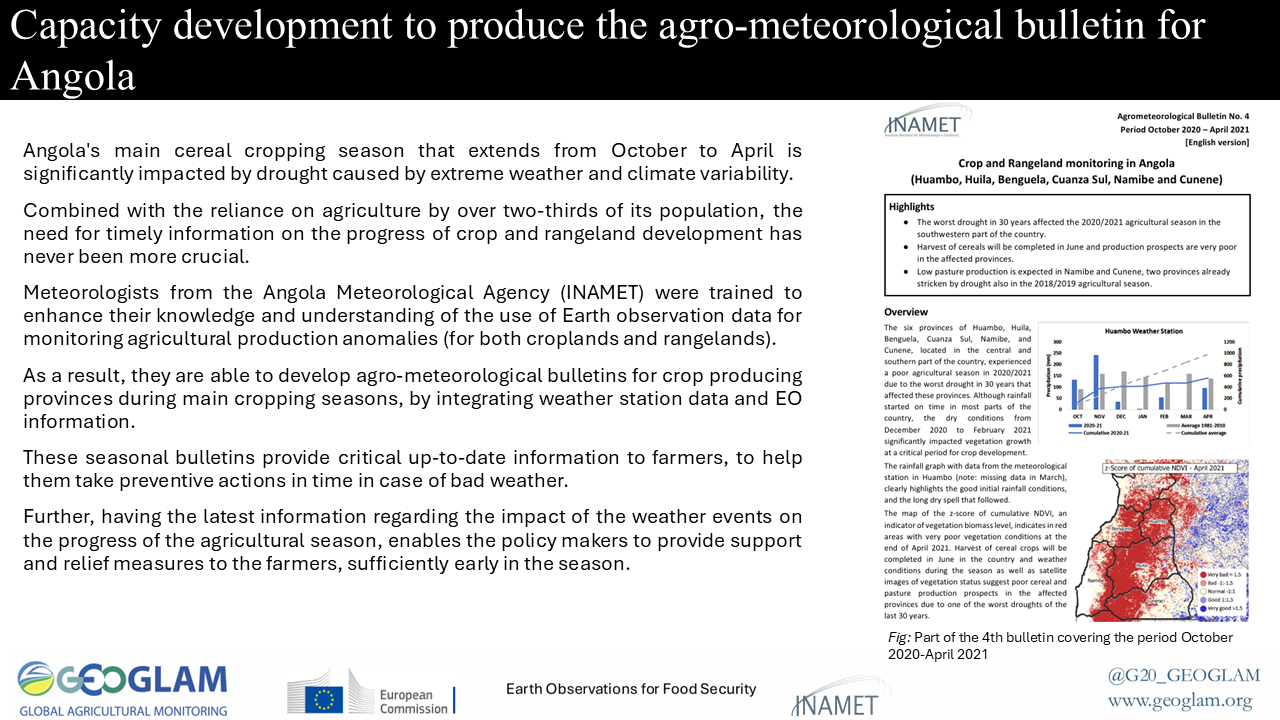
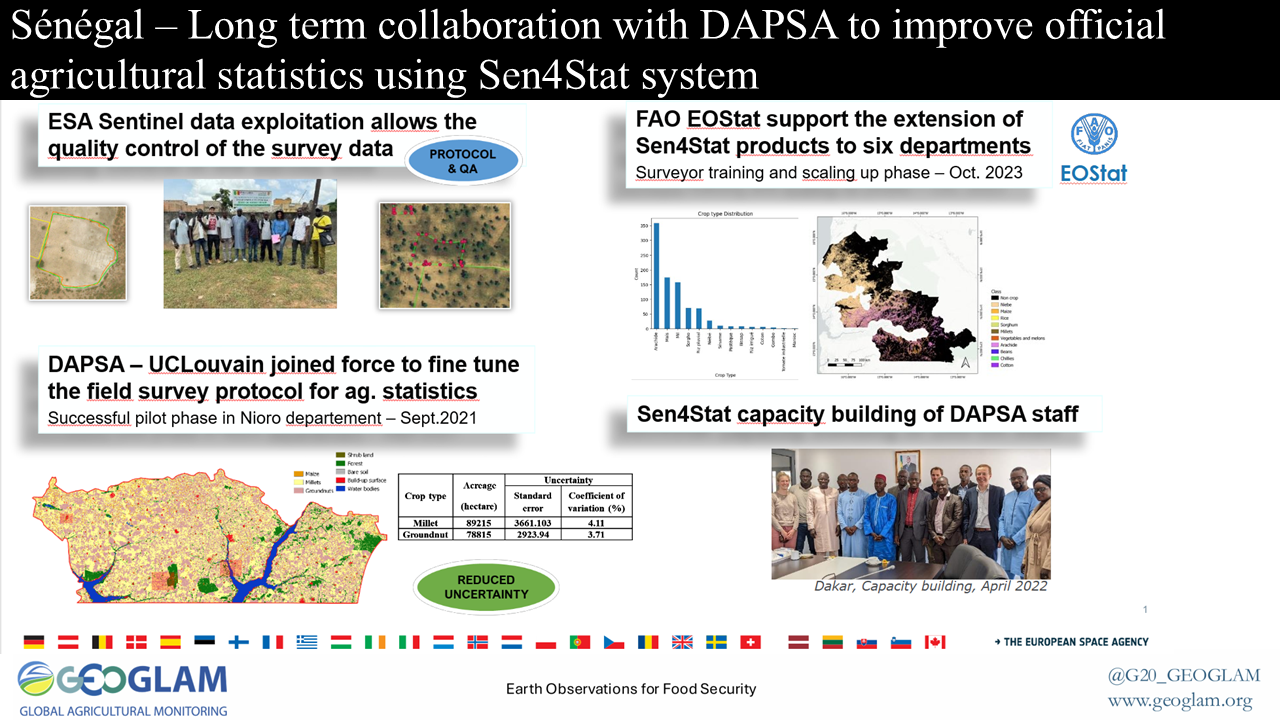
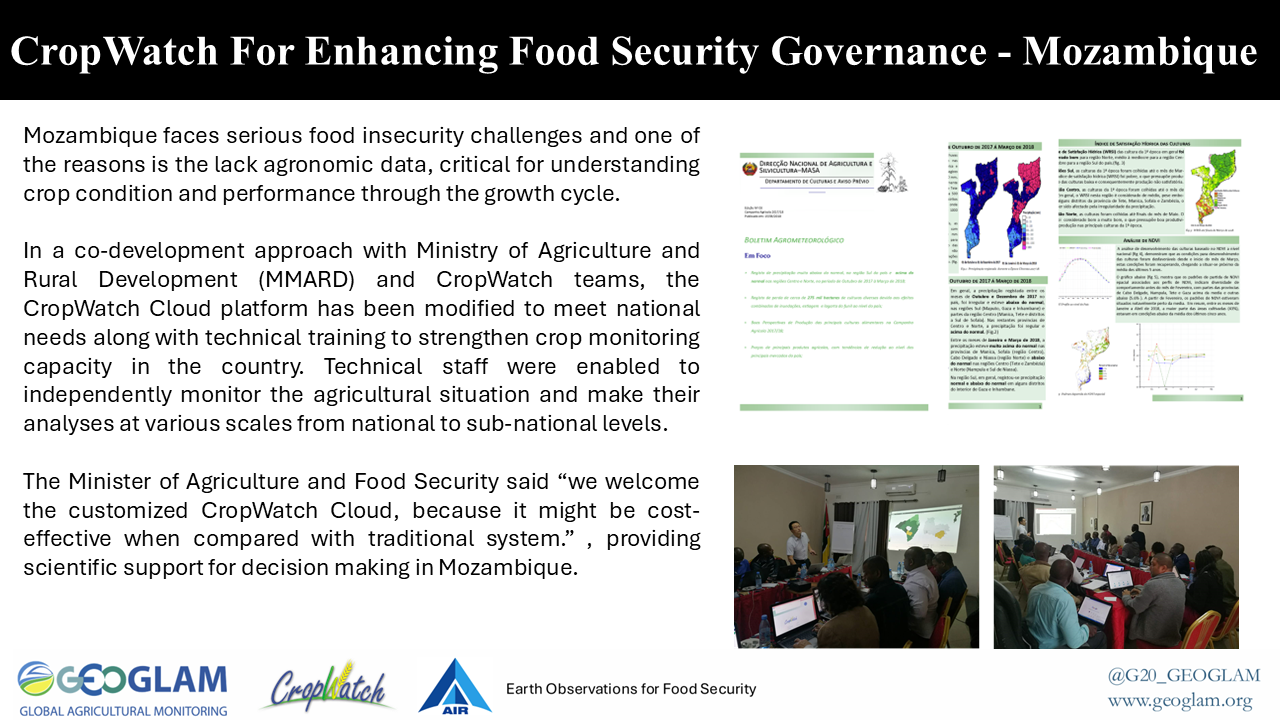
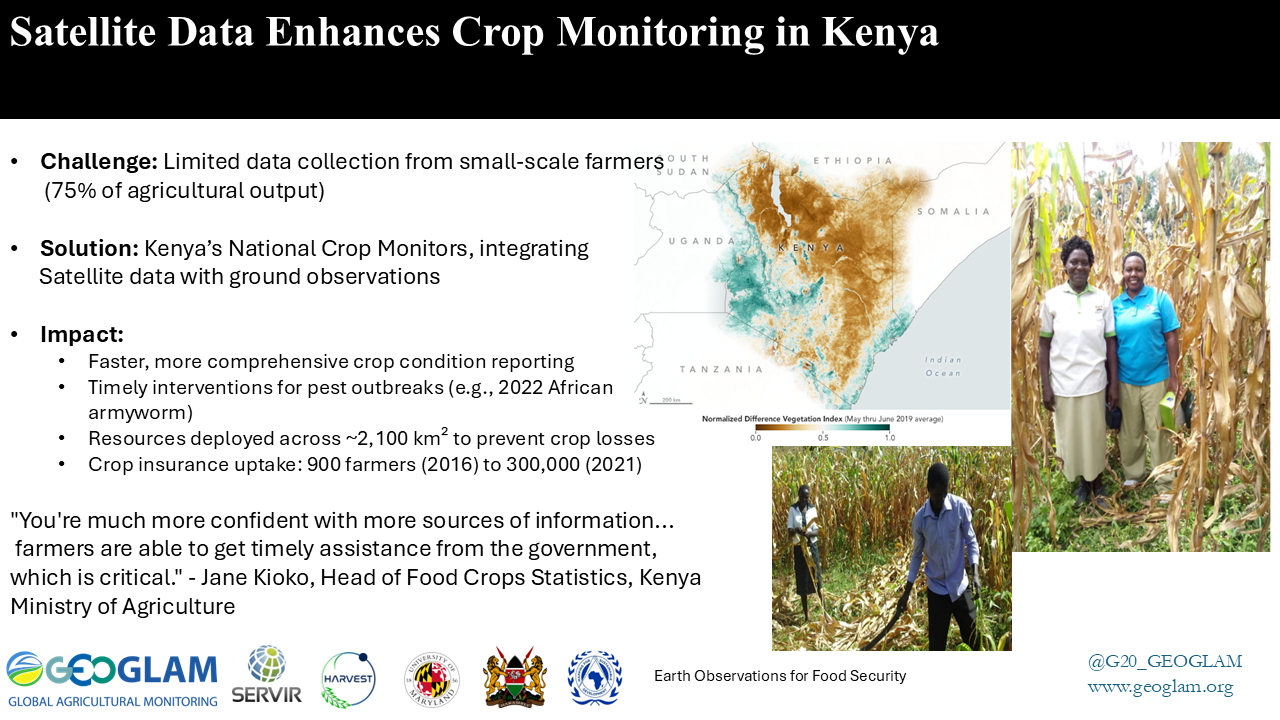

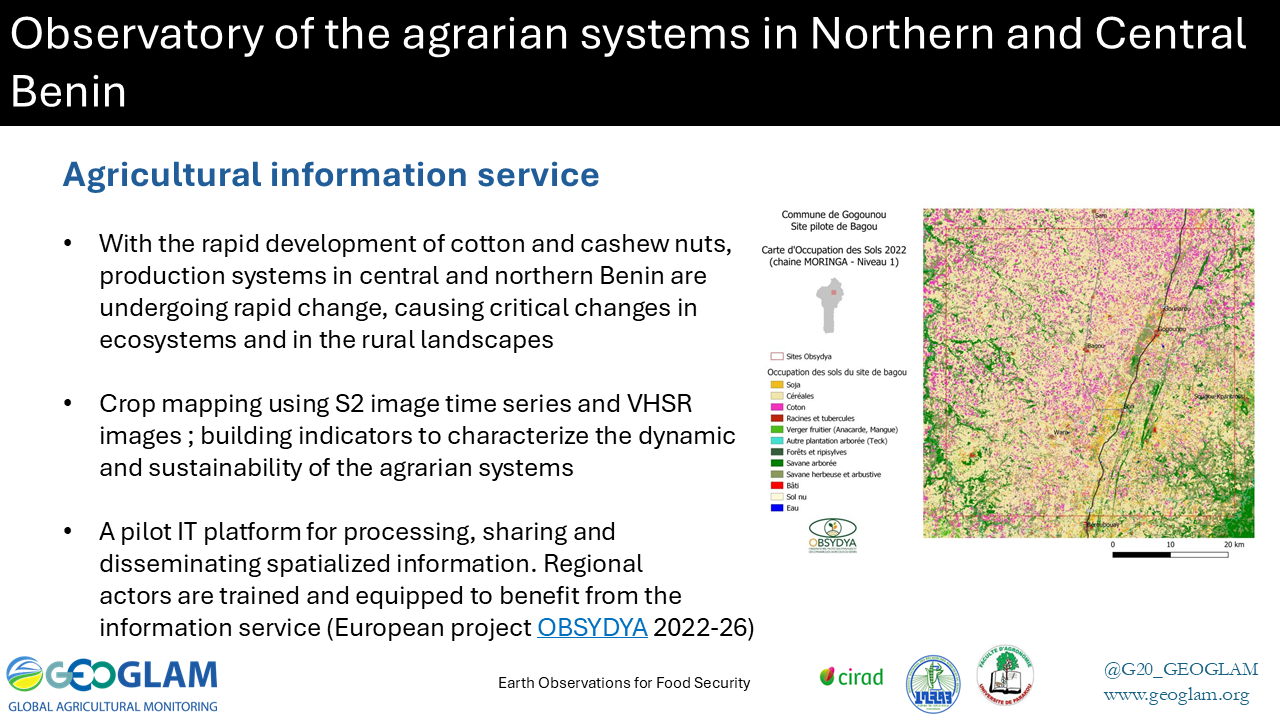

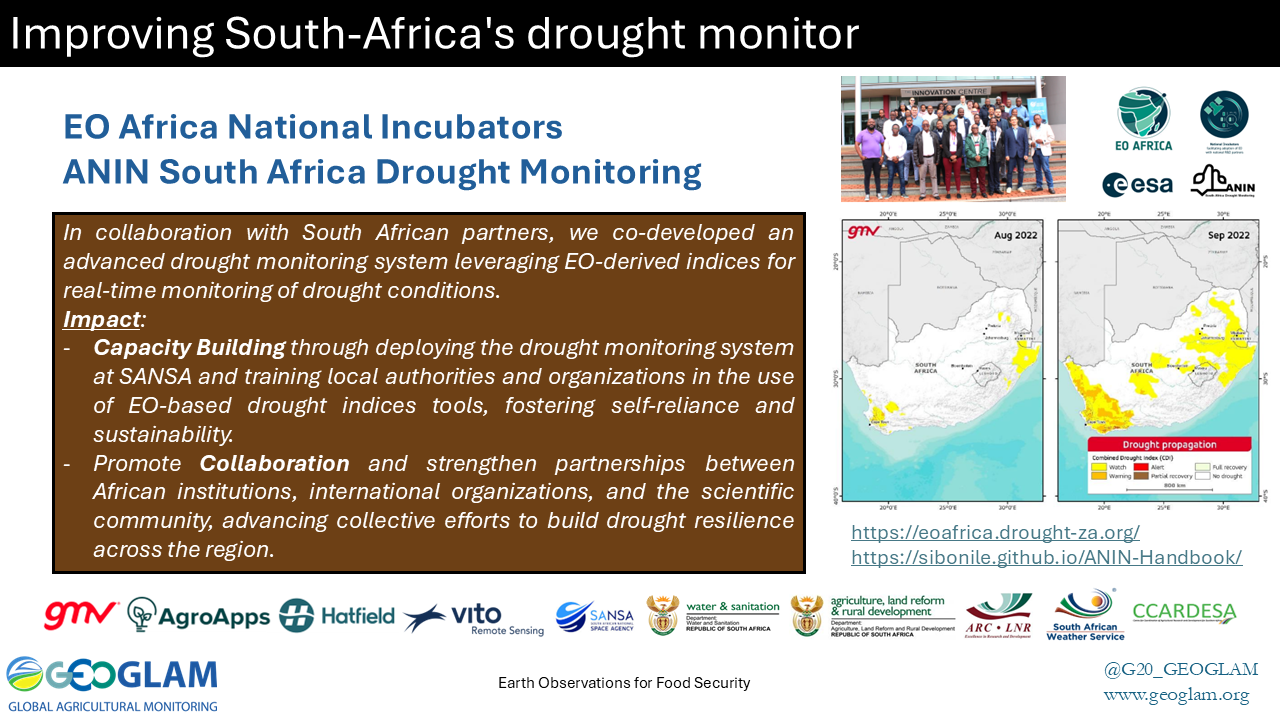






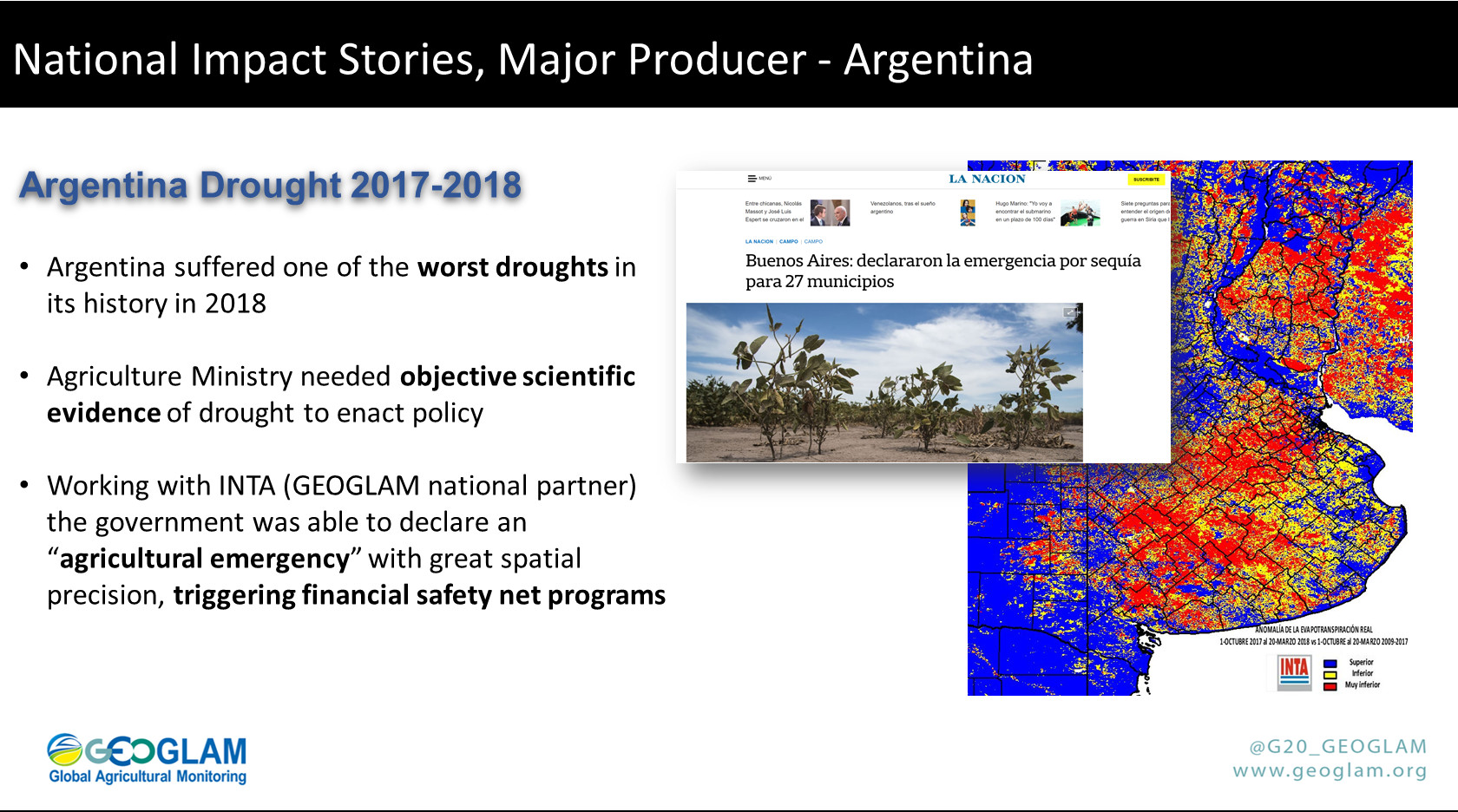
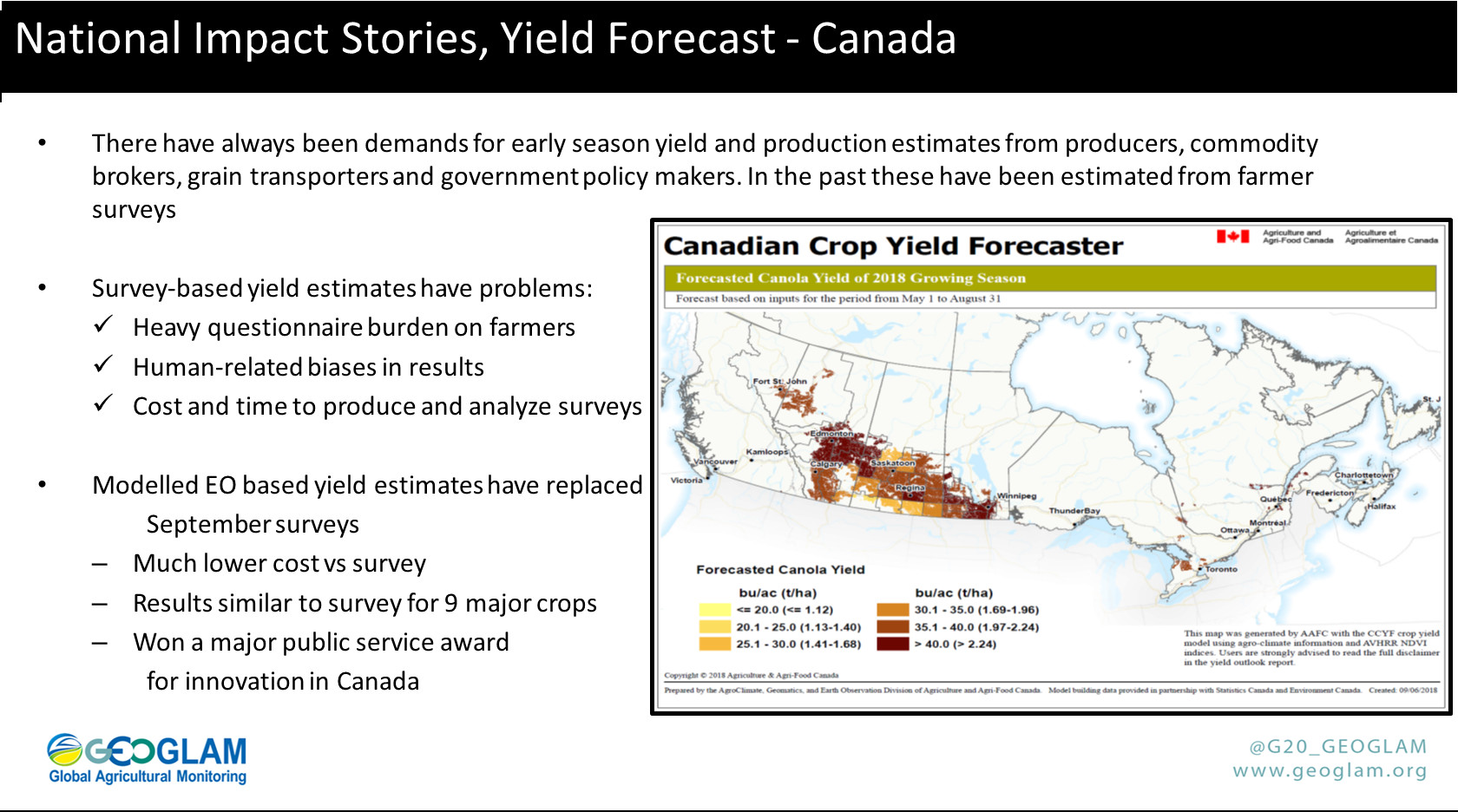
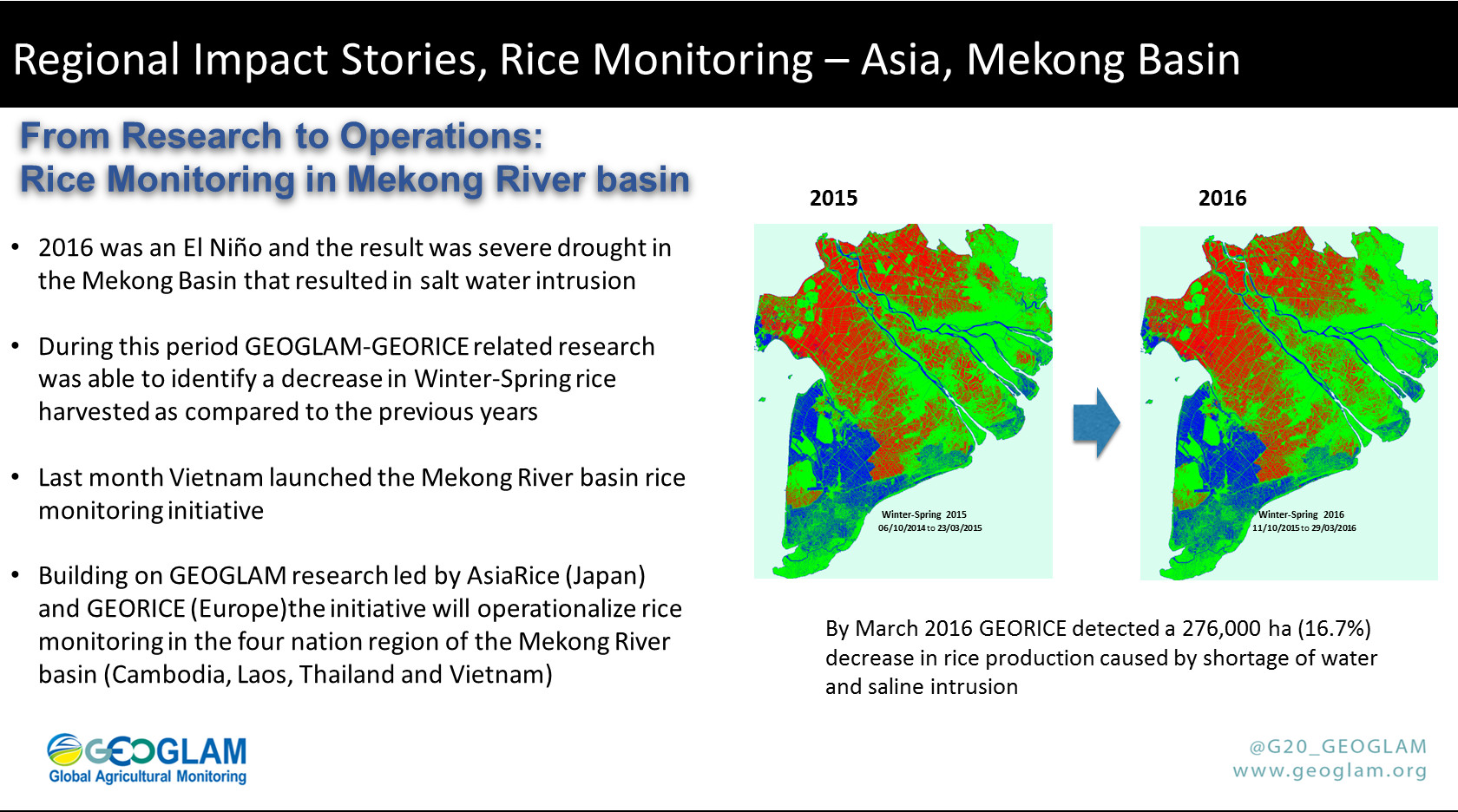
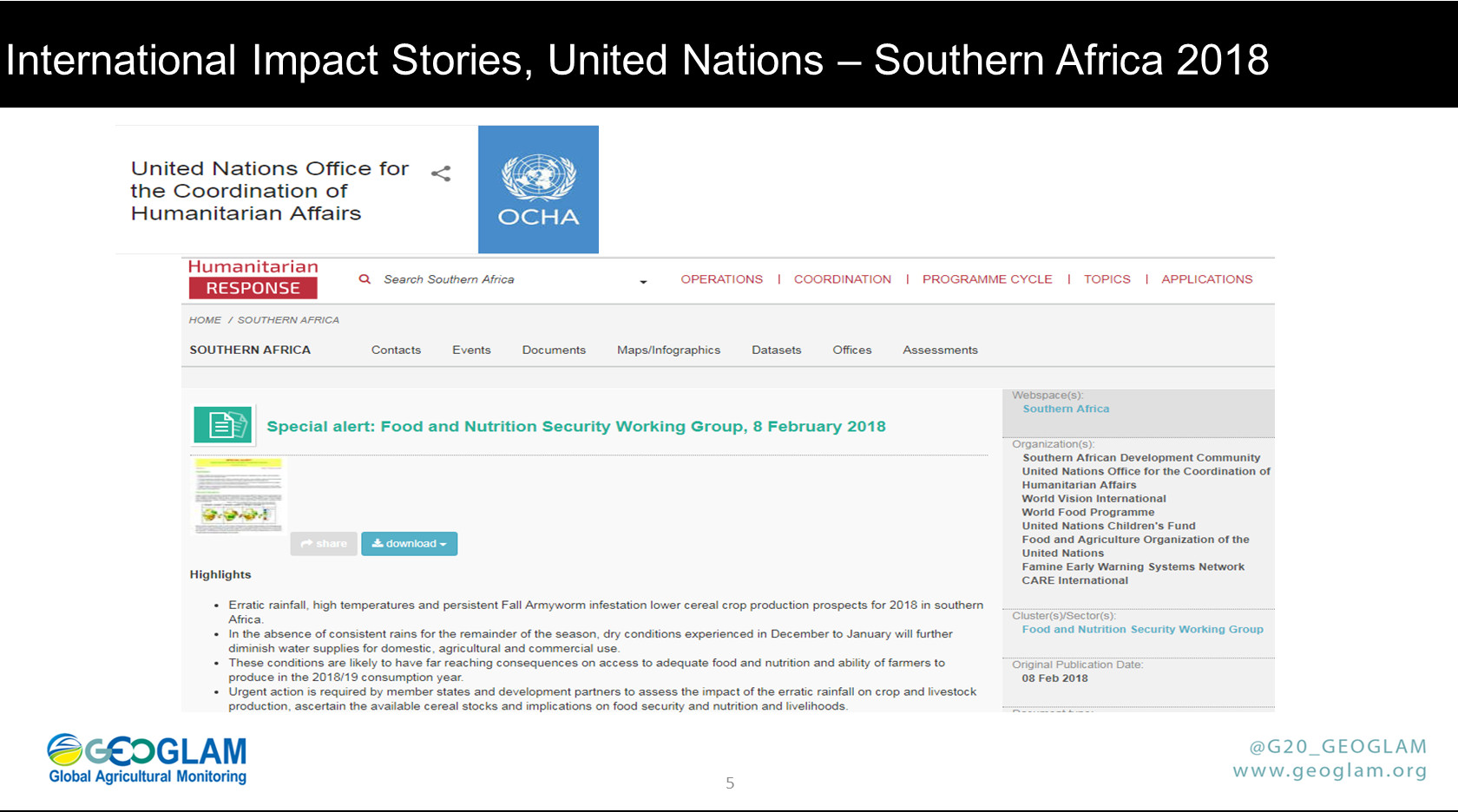
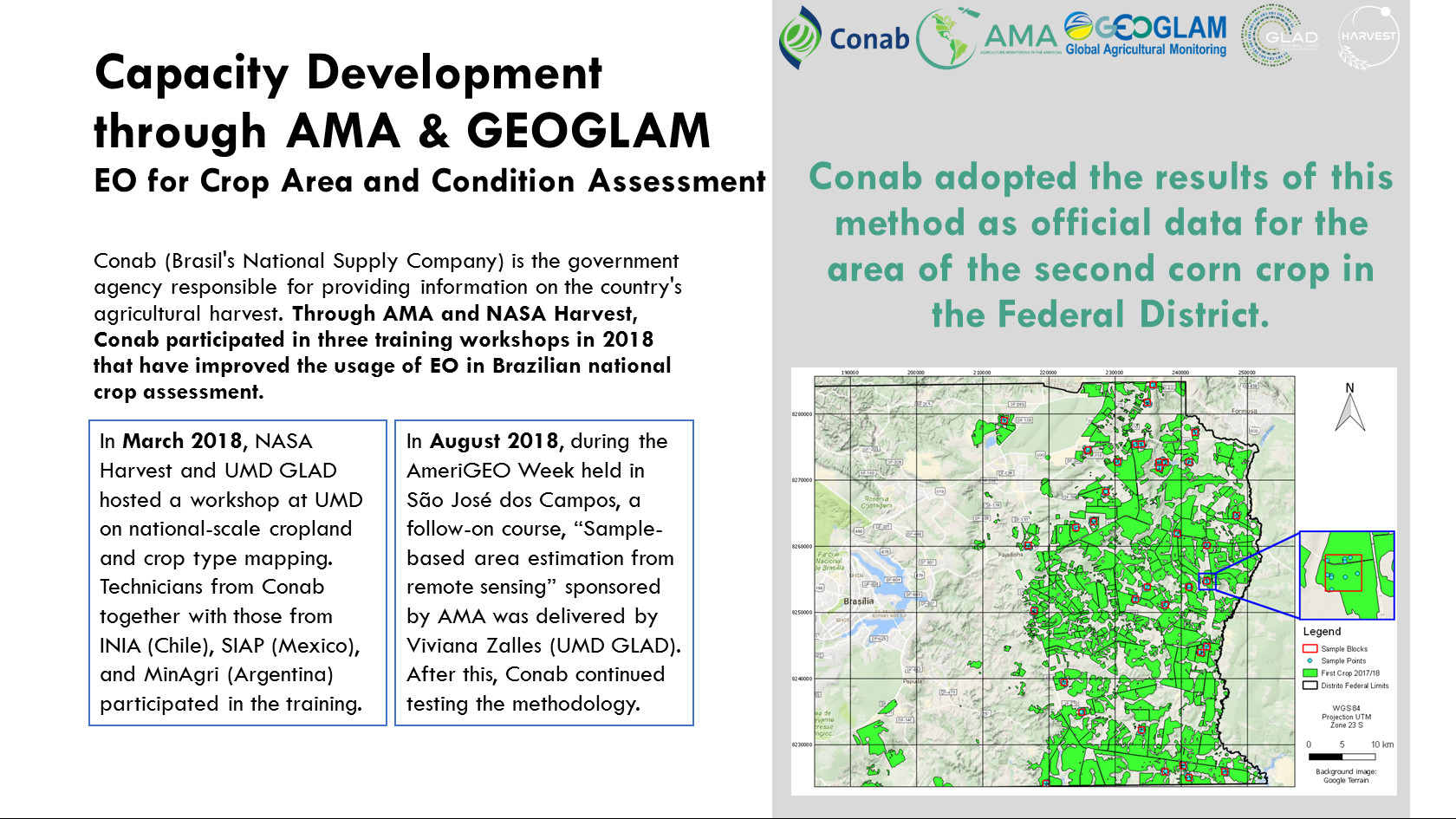
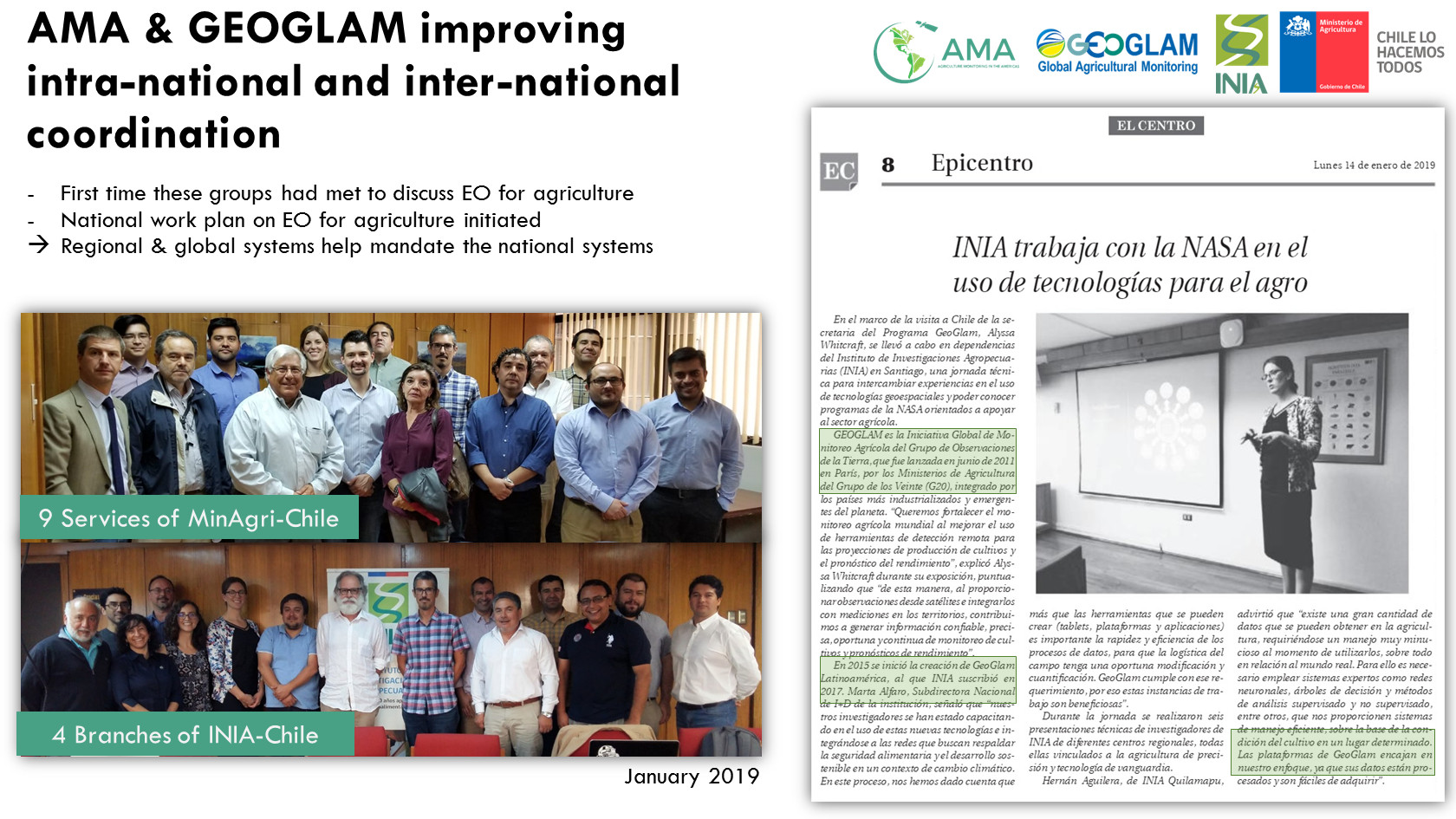
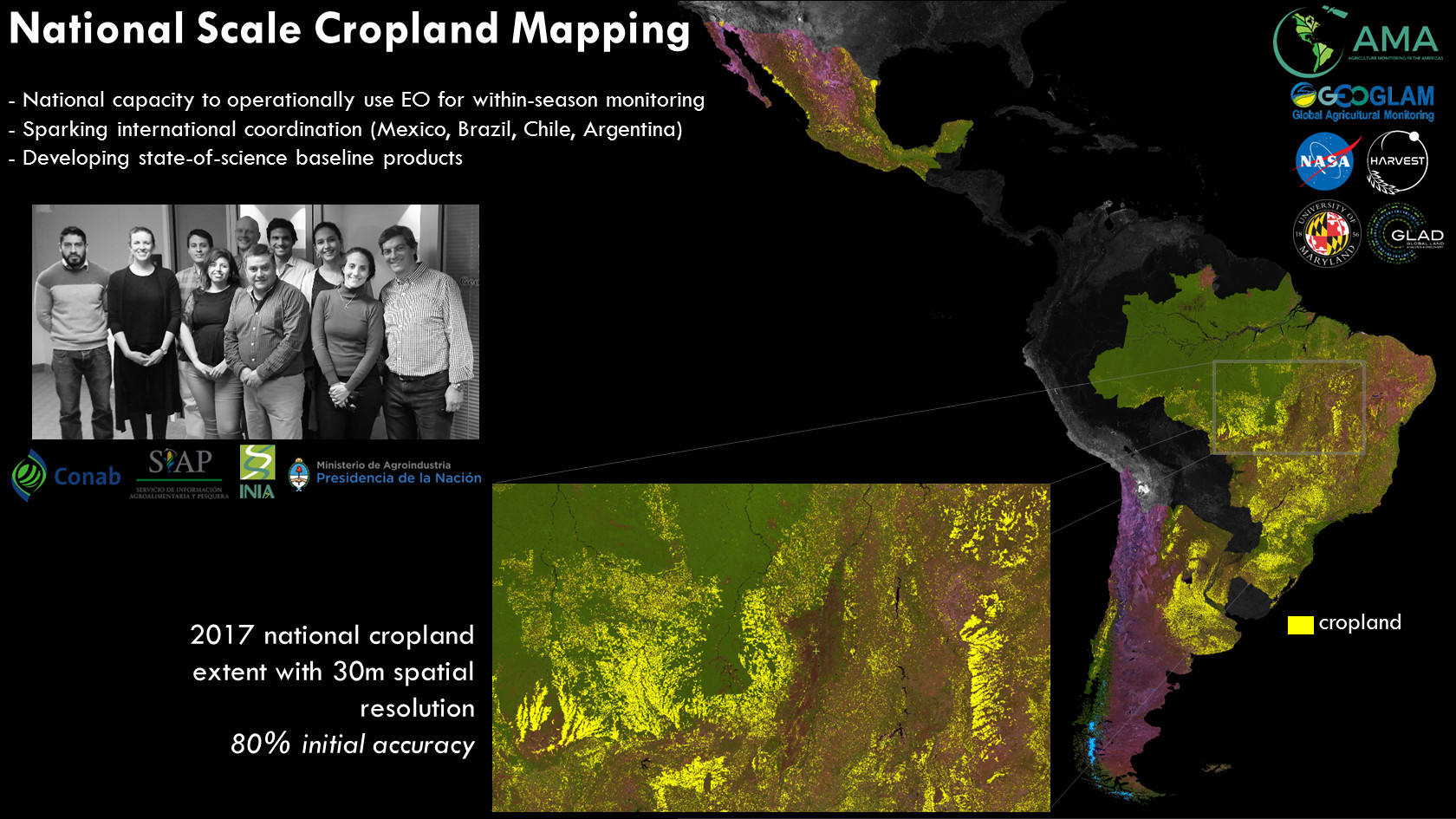
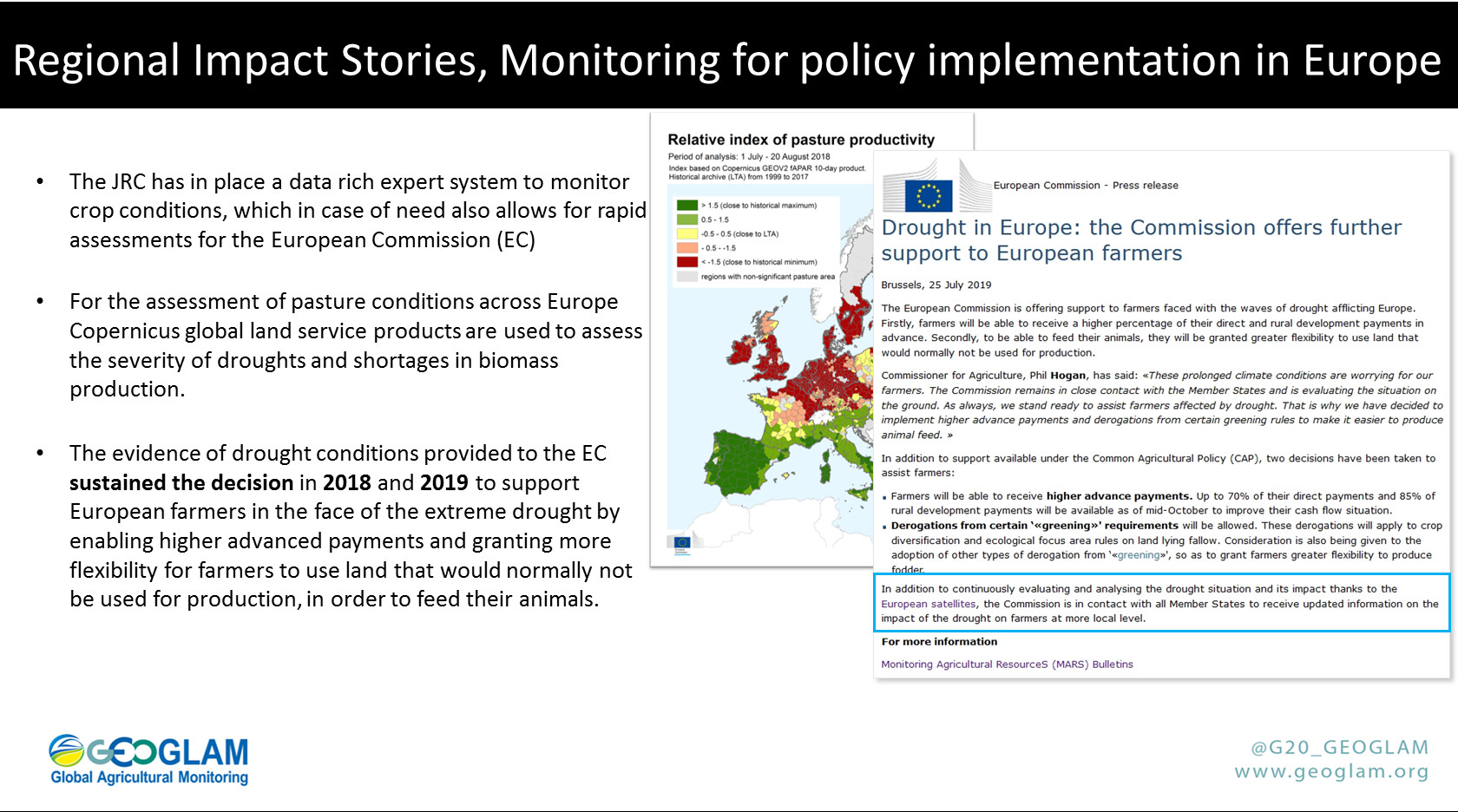
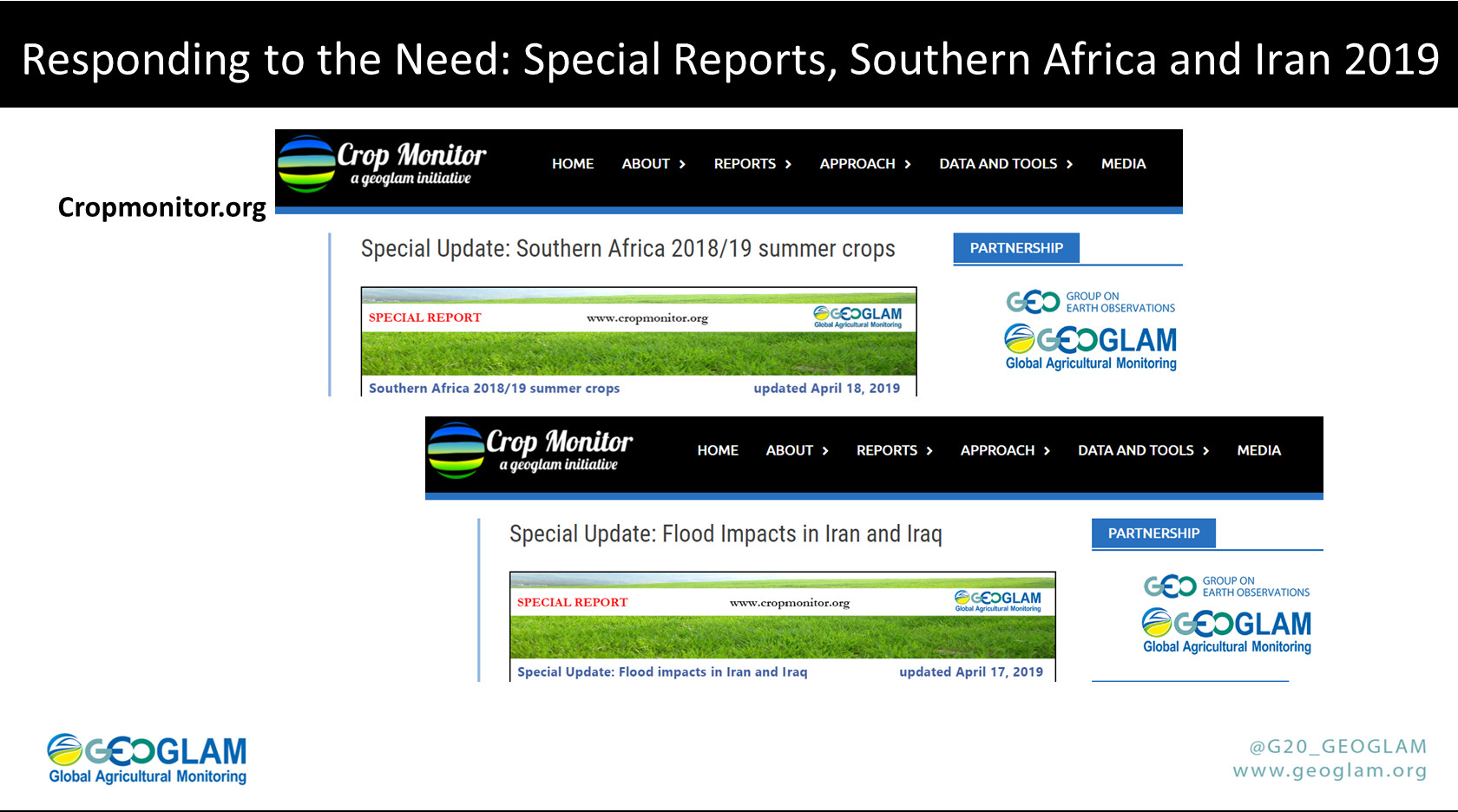
MEET OUR COMMUNITY
The heart of GEOGLAM is the many projects that contribute to GEOGLAM program mandate and outcomes. These projects are generally in-kind contributions from participating nations and institutions.
The Ex-Com comprises major contributors to the GEOGLAM work program, the Co-Chairs, regional and thematic leads, and the Program Director. It provides operational and strategic advice for the GEOGLAM work program, and through the Director reports on implementation progress.
The Co-chairs provide the strategic direction and leadership in fulfilling the GEOGLAM mandate and responding to the [emerging] global policy drivers in agriculture production and food security. The co-chairs are supported by both the Ex-Com and the Secretariat.
The Secretariat is the formal, outwardly liaising body of GEOGLAM to partner organizations including GEO. The Secretariat provides coordination and support for GEOGLAM initiatives and program reporting (eg. G20, GEO work programme, and GEO Programme Board as required), program outreach, and communications.
Working Groups
Coming soon
Sharing knowledge, data, methods, and tools for the collection and harmonization of ground-based observations...
To page
Coming soon
Strengthening individual, organisational, and institutional capacities to use Earth observation (EO) data for agricultural monitoring and food security decision-making.
To page
Coming soon
Read Our Blog
At the 2025 GEO Regionals
Each year, GEO’s regional organizing bodies and caucuses convene to showcase and advance innovation and shared understanding across the Earth Observation community. As the GEO flagship for...
Reflections from the GEOGLAM Crop Monitor Learning Exchange in East Africa
18-22 March 2024, Naivasha, Kenya. The GEOGLAM community organized the East Africa Learning Exchange on Earth observation (EO) based-agriculture monitoring systems and approaches.Gathering national,...
GEOGLAM CROP MONITOR SPECIAL ALERTS – SOUTHERN AFRICA EL NIñO INDUCED DROUGHT
The 2023/2024 El Niño brought severe below average and erratic rains over Southern Africa for the main cropping season. In addition to a delayed start, poor rains and high temperatures, a...
GEOGLAM @ GEO WEEK 2023
This year’s GEO Week and Ministerial Summit, held in Cape Town, South Africa, under the theme ‘The Earth is Talking’, was a defining moment for the GEOGLAM community. More than just a meeting of...
G20-India Re-Affirms Support for GEOGLAM and AMIS Initiatives
Under India’s Presidency, the G20 Ministers of Agriculture, assembled on 16-17 June 2023 in Hyderabad, India to reiterate their commitment to food security and nutrition for all, through the...


